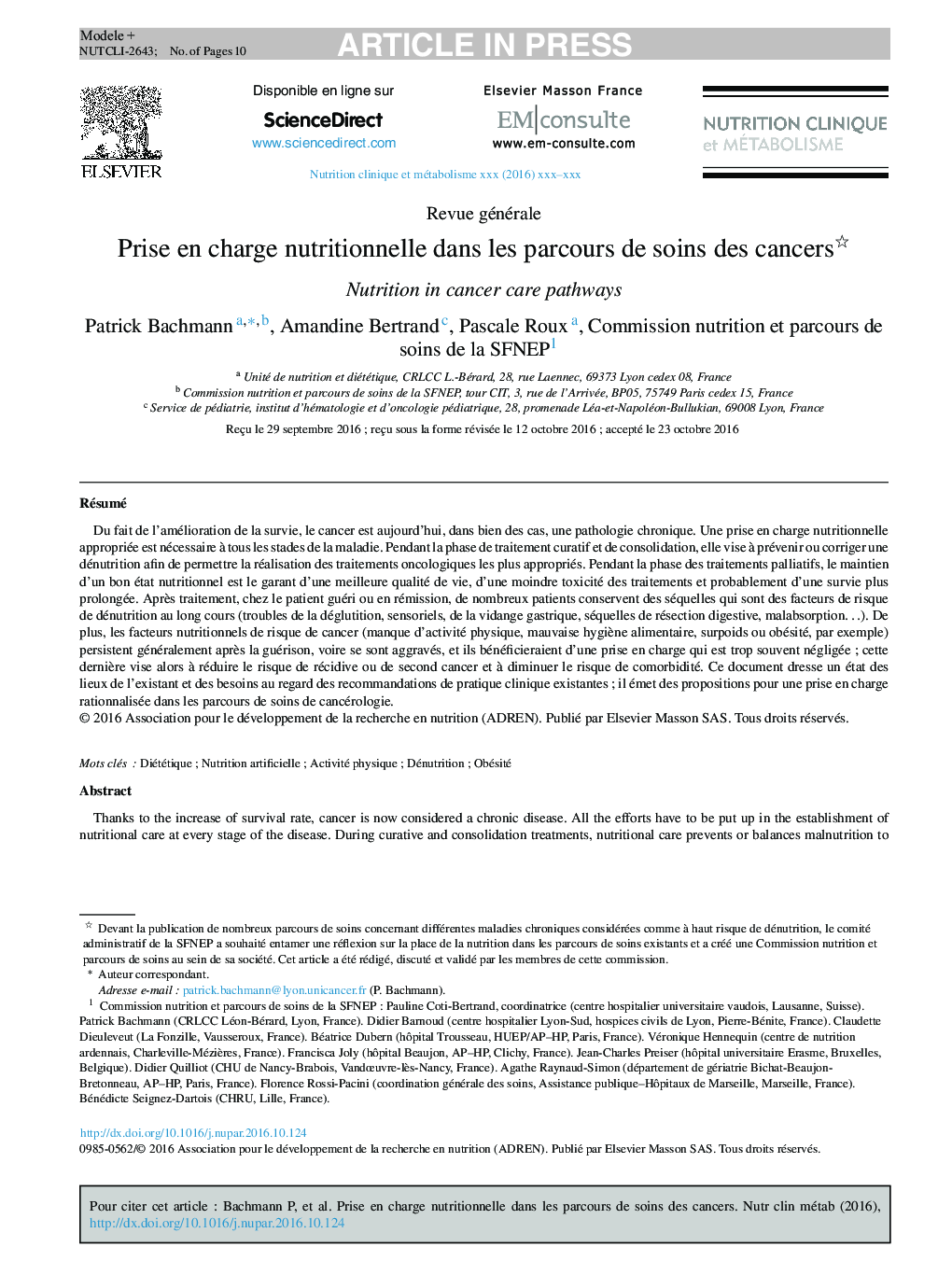| Article ID | Journal | Published Year | Pages | File Type |
|---|---|---|---|---|
| 8589399 | Nutrition Clinique et Métabolisme | 2016 | 10 Pages |
Abstract
Thanks to the increase of survival rate, cancer is now considered a chronic disease. All the efforts have to be put up in the establishment of nutritional care at every stage of the disease. During curative and consolidation treatments, nutritional care prevents or balances malnutrition to allow appropriate oncologic treatment to be carried out. During the palliative stages of the disease, nutrition care aims to keep patients in a better physical condition to face treatment toxicity and most likely to increase survival. At the end of the treatment, patients often keep sequela that could lead to long-term malnutrition. Moreover, cancer-associated nutritional risk factors (lifestyle with lack of physical activity and/or poor diet, overweight and obesity for instance) usually last after treatment and are eventually worsen. Patients could take advantage from a better care to reduce the risk of relapse or others comorbidities. This article summarizes the current situation and needs in relation to the existing clinical practice guidelines. Proposals are made for a more rational care along the oncological pathways of treatments.
Keywords
Related Topics
Health Sciences
Medicine and Dentistry
Gastroenterology
Authors
Patrick Bachmann, Amandine Bertrand, Pascale Roux, Commission nutrition et parcours de soins de la SFNEP Commission nutrition et parcours de soins de la SFNEP,
